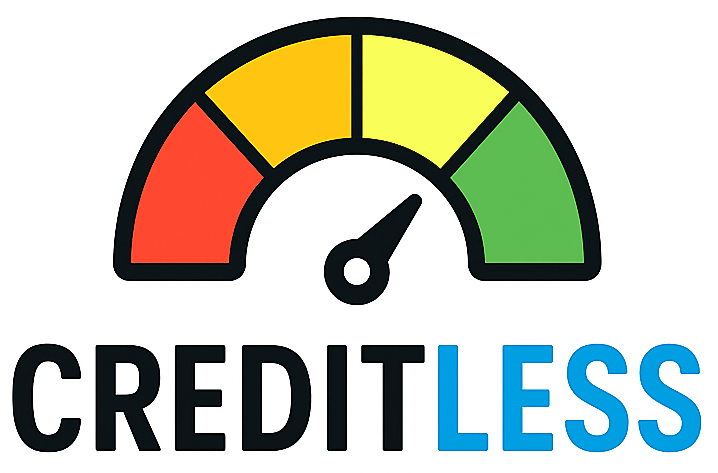Quick primer: Why secured cards and credit‑builder loans help thin‑file consumers
If you have little or no credit history (a “thin file”), the fastest, lowest‑risk ways to establish tradelines are secured credit cards and credit‑builder loans. Both create on‑time payment history and an age of account on your credit report—two of the most powerful signals scoring models use—without needing an existing credit score. This article lists issuer-backed choices, explains how each product reports to the bureaus, and gives practical steps to get started.
Important: not all products report the same information. Some secured cards (and some fintech “credit builder” products) report payment status and balances to all three national bureaus; others report only limited details or exclude utilization reporting. Always confirm an issuer’s reporting policy before you apply.
Top secured cards for thin‑file consumers — what makes each option useful
Below are widely used secured cards that are accessible to people with limited credit histories. For each card we list the feature that matters most to thin‑file consumers: approval odds, reporting behavior, deposit flexibility, or path to an unsecured card.
- Chime Credit Builder (secured Visa) — No hard credit check to apply, no required minimum deposit, and Chime reports secured Credit Builder activity to all three major credit bureaus. Because Chime doesn’t report a pre‑set credit limit or utilization the same way as traditional cards, many users find it avoids utilization hits while still adding payment history.
- Capital One Platinum Secured — Flexible deposit options (sometimes a reduced initial deposit based on eligibility) and regular reporting to the three bureaus; Capital One has a clear upgrade path to unsecured products for responsible users. Good if you want a mainstream issuer with upgrade opportunities.
- Discover it® Secured — No annual fee, cash‑back rewards (unusual for secured cards), and reports to all three bureaus; Discover is known for granting unsecured upgrades after several months of responsible use. (Verify current upgrade timing and terms on Discover’s site.)
- OpenSky® Secured Visa (OpenSky Plus) — No credit check required to apply (high approval odds for very thin or damaged files) and reports to all three bureaus. Good option if you can’t risk a hard inquiry.
- First Progress Secured cards — Multiple First Progress secured products accept applicants with limited/no credit and report monthly to all three bureaus; some variants include modest rewards or lower APRs. Expect fees on some versions—compare terms before applying.
How to pick among these: if you want to avoid any hard pull and have high approval odds, OpenSky or Chime are common picks. If you prefer an issuer that may graduate you to an unsecured card, Capital One or Discover often provide upgrade paths. Always verify current fees, minimum deposit and reporting practices directly on the issuer’s site before applying.
Top credit‑builder lenders (installment style) — how they differ from secured cards
Credit‑builder loans (often offered by fintechs, Credit Unions, or specialized lenders) create an installment tradeline: you make a set of scheduled payments that the lender reports to the bureaus. These products are particularly useful for thin files because installment tradelines add account mix and consistent payment history.
- Self (Self Financial) — One of the most popular credit‑builder accounts; Self reports payments and account status to the three major bureaus and, through acquisitions, also offers rent reporting. Self’s model locks the loan proceeds until the loan is repaid and reports payment history monthly. That combination helps many thin‑file users establish a visible tradeline.
- Credit Strong — Positions itself as a savings‑backed installment builder that reports to Experian, Equifax and TransUnion, provides a monthly FICO8 display, and requires no hard inquiry to open certain accounts. Good for consumers who want longer terms and curated plans.
- Credit union and community options (examples) — Many credit unions (DCU, Patelco, Navy Federal and others) offer credit‑builder or "ScoreUp" style loans that report to the bureaus and may have low fees. These local options often have lower interest or fees than fintech subscriptions; membership restrictions may apply. (Compare availability and terms.)
Key difference vs secured cards: credit‑builder loans typically report as installment accounts (helpful for credit mix) and lock the principal until the loan term ends. Secured cards create revolving tradelines that, when used responsibly, improve utilization and ongoing payment history.
Practical checklist & 90‑day action plan for thin‑file consumers
- Confirm reporting: Before you apply, check the issuer’s help/FAQ page and confirm they report to Experian, Equifax and TransUnion. (Not all products report to all three.)
- Pick one starter product: If you want a simple low‑touch start, choose a no‑hard‑pull option (Chime or OpenSky) or a low‑fee secured card (Discover/Capital One) if you prefer major‑bank relationships. If you prefer an installment approach, choose Self or Credit Strong or a local credit‑union credit‑builder loan.
- Set up auto‑pay: Ensure on‑time payments—this is the single most important factor for building credit. Automatic monthly payments reduce missed‑payment risk.
- Use credit sparingly: For secured cards, keep utilization low (<30% of the deposit limit). For credit‑builder loans, focus on making full on‑time monthly payments to create a positive payment history over time.
- Monitor progress: Check your credit reports (annualcreditreport.com for free copies) and your scores monthly. Expect to see tradelines appear within 30–60 days for many builders; meaningful score movement often takes 3–6 months of consistent reporting.
Final note: each product has tradeoffs—fees, deposit size, upgrade pathways, and exactly what is reported. If you’re building from scratch, start with one product, confirm reporting, automate payments, and re‑assess after 3–6 months. Combining a single secured card plus one installment builder can diversify tradelines and often speeds progress—if done carefully and without missed payments.
